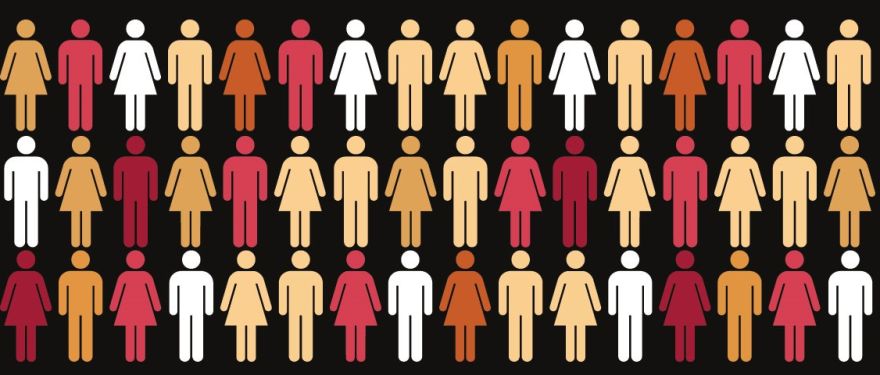In the year since the HBS Plan for Racial Equity was established, the MBA Admissions and Financial Aid teams have continued and extended efforts toward increasing opportunities for Black applicants. Alongside reinforcing and expanding current outreach efforts, the Plan outlined three clear commitments aimed at reducing financial barriers that often prevent students from underrepresented minority groups from applying to and attending HBS:
- Launch a need-based waiver of the application fee for all prospective students in all admissions rounds.
- Evaluate and revise our current need-based formula for financial aid to account not just for individual income and assets but also for socioeconomic background.
- Create a new complementary fellowship to support students who have demonstrated exemplary commitment to serving Black / African American, Hispanic / Latinx, and other marginalized communities of color prior to enrolling at HBS.
These commitments, explained Chad Losee, managing director of MBA Admissions and Financial Aid, were identified through extensive research with external subject experts and continued conversations with MBA students. That research and the increased urgency around racial equity efforts allowed the team to move quickly: The financial aid formula was reconfigured in December 2020, the application fee waiver was rolled out in June 2021 for all applicants, and applications for the first recipients of the Recognizing Individuals Seeking Equity (RISE) Fellowships will be reviewed this fall.
“We didn't need a year to get a lot of this work underway, these are all things we were able to get started on immediately,” said Brook Dennard Rosser, assistant director of diversity outreach for the MBA Program. “We were able to get widespread buy-in quickly, so at the one year mark, we're in a position to implement many of the changes and recommendations for the incoming class. We’ve set a high bar for ourselves and have showcased our commitment to the work and our intent to take action quickly.”
Two new websites for prospective students address socioeconomic inclusion and first generation students, including resources, identity and affinity groups, support structures, student profiles, and programming, events, and webinars.
“There's been a big shift in terms of how we create opportunities for students to get to know us through the lens of their own lived experiences and identities,” said Rosser. “Explicitly talking about and acknowledging intersectionality, being a first-generation student at the graduate level, or coming from a low-income background or under-resourced community, is just not something that has historically been pervasive in business education. Naming and acknowledging the impact of these lived experiences explicitly can be incredibly affirming—and allows people to see that there are members of our community who’ve had similar pathways, journeys, and experiences.”
This past summer saw the second iteration of the Virtual Venture into Management (VVM), a virtual complement to the Summer Venture In Management Program (SVMP), one of several programs and partnerships aimed at increasing the pool of talented applicants from backgrounds underrepresented in business and business education. Each virtual program had over 1,000 registrants, and conversations are underway as to how to maintain the increased access to the HBS community via virtual programming as the opportunity to return to more in-person campus experiences presents itself.
Programmatic offerings will continue to highlight students, alumni, and faculty perspectives on intersectional identities, impostor syndrome, inclusion, and authenticity. “We continue to be awed by our students’ and alumni’s willingness to share and speak their truths, and in doing so opening the door for others to see that they won't be the first or the only, and that HBS is 100 percent within reach,” said Rosser.
The financial aid formulation, which has historically been driven by salary history, now also accounts for socioeconomic background, which continues to affect an applicant’s financial circumstances throughout their early professional years. The additional 10-12 questions on the financial aid form ask students about their financial situation earlier in their lives and take approximately 5-10 minutes to answer. Awards for the MBA classes of 2022 and 2023 were based on this new formulation, and in interviews with students, the team has heard positive feedback on the broader approach to understanding need.
“HBS has always been committed to need-based financial aid, and this shift makes that assessment more inclusive,” said the team’s project manager, Lara Gund. “We're looking at a broader set of circumstances that we know to be very real financial considerations for pre-MBA professionals. Combined with the new application fee waiver, we’re letting our applicants know that we don't want up front financial considerations to get in the way of seeing themselves at HBS. We see this as a joint investment in these students’ futures. Enabled by generous support from alumni, we do all we can to make sure that everyone who is admitted can afford to attend.”
The RISE Fellowships, which are designed to support students with a demonstrated commitment to serving Black, Latinx, and other marginalized communities of color, are being awarded this year in the fall, and in May going forward. The two-year $20,000 award is in addition to any need-based tuition scholarships.
Welcoming students in-person this fall has been a highlight for Rosser, who joined HBS in February 2020, a month before the pandemic forced staff and students to work and learn remotely. The incoming class, she says, represents a manifestation of the team’s work over the past several years. “My hope is that these efforts helped them to decide that this is the right place for them, and also that they are showing up confident and ready to take the world by storm. I want the people who are here to know they are where they are meant to be, and I want them to have the experience that aligns with the one we promised them—and that’s one that allows them to be whole, authentic, and to show up every day as their best selves.”
This article was originally published by the HBS Newsroom.

